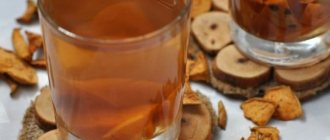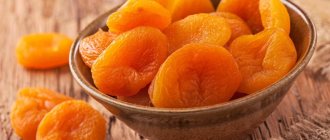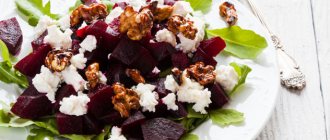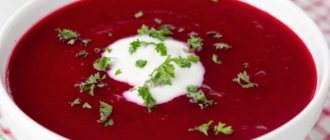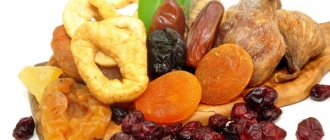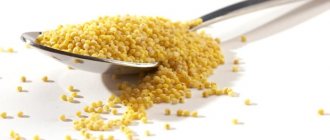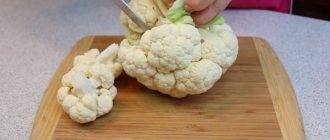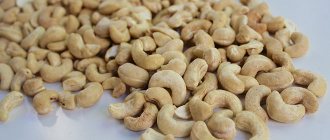Fruit and vegetable drinks must be present in the mother's diet during lactation, as they make mother's milk rich in valuable substances.
You can reduce the risk of eating disorders by preparing compote from dried fruits while breastfeeding, because it has the same value as that cooked from fresh fruits. Is it possible for a nursing mother to have such a drink, how to prepare it and when is the best time to include it in the diet so as not to harm either the newborn or the mother?
The benefits of dried fruits
Many women have to give up all sweets after giving birth. Dried fruits and compote made from them allow, in a sense, to make up for such losses. In addition, in relation to a nursing mother, two main advantages of this wonderful drink can be distinguished:
- Firstly, it brings noticeable benefits when the lactation period is unsatisfactory. Experts recommend that nursing mothers drink a glass of lukewarm compote about 30 minutes before the baby's meal. This will activate milk production.
- Secondly, dried fruit compote during breastfeeding helps those women who often suffer from constipation during the postpartum period. However, newborns also experience this problem during the first months of life. Compote acts as a good medicine because it has a more gentle effect than medications, the active substances of which can pass into breast milk, which is extremely undesirable.
In addition, it is worth noting that dried fruits are a whole storehouse of useful substances, which are no less than in fresh ones. Of course, subject to proper drying.
Dried fruits during breastfeeding
Dried fruits and berries are dried fruits. After they have been left in the sun or processed in a dryer at the factory, their moisture content remains approximately 20%.
The main property of dried fruits is their ability to be stored for a long time without losing the bulk of their beneficial substances.
Nowadays, there are any number of methods for preparing dried fruits: dried in the sun or in the shade; using a dehydrator at the enterprise; treated with chemicals, pre-boiled, doused with glaze, sprinkled with powdered sugar.
Dried fruits include:
- Dried fruits, including: dried apricots, prunes, dates, apples, pears, figs; from exotic mango, papaya, persimmon, coconut.
- Dried berries, for example: raisins, rose hips, cherries; less often raspberries, strawberries, currants.
What are the benefits of dried fruits?
Dried fruits and berries are called “a storehouse of vitamins and microelements.” Some say that dried fruits contain the same amount of nutrients as fresh fruits. Others argue: even more than fresh ones, because everything valuable is present in concentrated form. However, if we talk about preserving vitamins without freezing, dried fruits definitely leave their counterparts far behind.
Dried apples are just as healthy as fresh ones.
Here is an incomplete list of what dried “gifts of nature” are rich in:
- vitamins A, C, E, group B;
- potassium;
- magnesium;
- manganese;
- iron;
- cellulose;
- fructose;
- pectin;
- beta-carotene;
- polyphenols.
To be fair, let’s add a “fly in the ointment” to the information about vitamin C. As a water-soluble element, it has weak bonds and disintegrates during long-term storage; afraid of light, heat, high humidity. Result: the dried product remains without a significant part of ascorbic acid (vitamin C).
In general, dried fruits, having a powerful arsenal of useful substances, have a beneficial effect on almost all systems of the human body:
- on cardiovascular;
- to the circulatory system;
- to the immune;
- nervous;
- on the digestive.
By regularly snacking on dried fruits or eating them as dessert, you will lower your cholesterol levels and increase your hemoglobin levels; improve complexion and strengthen hair; Recharge with a good mood, energy and easily cope with physical activity.
Dried fruits help hair become strong and beautiful
Fructose, which is found in dried fruits, successfully replaces sugar, which is more harmful to the body. But fructose is not a dietary product, so its excessive consumption is contraindicated for those who lead a healthy lifestyle.
The place of dried fruits in the menu of a nursing mother
Doctors leave no doubt: during breastfeeding, mothers must add dried fruits and berries to their diet. Winter and spring are the best time for dried fruits: fresh products contain few vitamins, so the body weakens and viruses attack. And here a whole army of useful substances rushes to the rescue. In addition to strengthening the immunity of herself and her baby, the mother receives with dried fruits:
- improving milk flow (dates are responsible for this);
- prevention of constipation in yourself and your baby (prunes);
- improvement of appearance (dried apricots);
- burst of energy (raisins).
It is easier for a child’s body to absorb vitamins and microelements from dried fruits than from fresh fruits. As a result, the following is supplied to the baby with the mother’s milk:
- vitamin A - vitamin of growth and vision;
- B vitamins - help form the nervous system, muscle tissue and skeleton, supply blood to the brain and spinal cord;
- vitamin C - improves immunity;
- calcium - helps the heart function;
- phosphorus - affects bone formation;
- magnesium - helps form bone tissue and establish carbohydrate metabolism.

Both mother and baby benefit greatly from dried fruits.
Dried fruit compote - benefit or harm
With regular consumption of foods rich in beneficial microelements, human cells receive all the necessary building material. The immune system is strengthened, the functionality of all body systems improves, which has a positive effect on the general condition of a person.
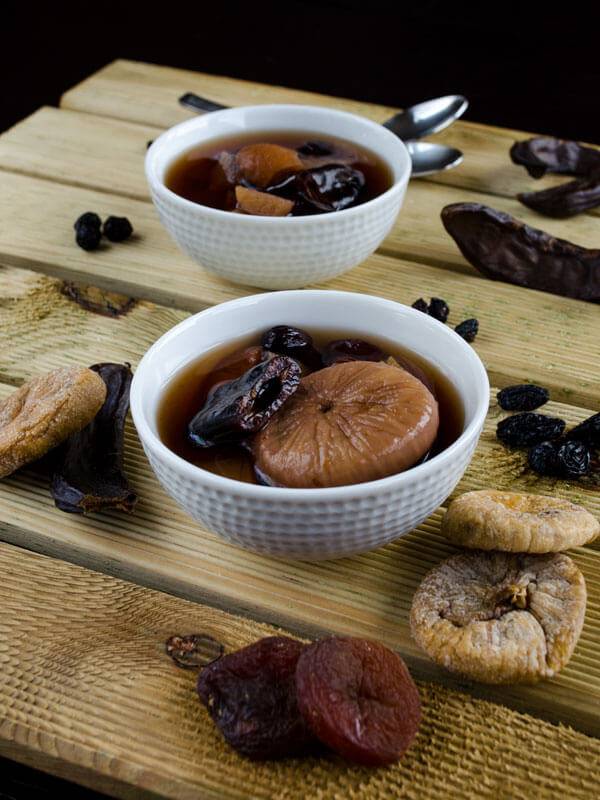
During lactation, an important role is played by iron, magnesium, potassium, and phosphorus. It is possible to maintain the required level in the female body by consuming dried fruits. In addition, this product contains various acids in large quantities: folic, citric, benzoic.
Important! Toxins that accumulate in the intestines gradually penetrate into breast milk. This leads to poisoning of the body not only of the nursing mother, but also of the child himself.
In other words, the question of whether dried fruit compote is beneficial or harmful is resolved by itself. And in many ways it’s more of a medicine. To prevent constipation, you should consume dried fruits in their pure form. For example, pre-soaked prunes. Other fruits and berries also have benefits.
Are apricots useful during breastfeeding?
In most cases, if there are no contraindications related to individual intolerance, apricots are useful for both pregnant women and nursing mothers. They are considered dietary fruits, and due to their sweet and juicy pulp they are also nutritious.
Ripe apricot is rich in potassium, which is necessary for the normal functioning of the heart and nerve cells. Dried apricots contain 5-6 times more potassium than fresh ones. Apricot also contains magnesium and phosphorus, which activate the brain; iron and iodine, preventing thyroid diseases; many vitamins (C, A, B1, B2, PP) and nutrients. In addition, apricots contain a lot of pectin and natural acids, such as citric, tartaric and malic. All these elements are directly involved in the life of the body.
It is known that in order to satisfy the body’s daily need for ascorbic acid, it is enough to drink ¾ glass of natural apricot juice.
Nutritional value of apricots
Considering all the beneficial properties, doctors recommend consuming this incredibly tasty and juicy fruit during breastfeeding, but in moderation, without excess. To avoid possible colic and pain in the baby’s tummy, they advise waiting until the child is 2-3 months old, when his digestive system becomes more adapted, and then you can try introducing apricots into the mother’s diet. For the first time, it is enough to eat half an apricot and observe the baby’s reaction after breastfeeding. If everything is in order, then you can safely include them in your diet.
By regularly consuming apricots, you will be able to feel and appreciate their beneficial properties for the body of a mother who is breastfeeding:
- They will help you quickly recover after childbirth and support you during breastfeeding due to a unique and balanced composition of vitamins, microelements and nutrients;
- Preserve and improve the external beauty of a young mother, ensure healthy teeth, hair and skin;
- Promote rapid cell restoration and normalization of internal organs;
- Normalize the functioning of the stomach (promote the removal of waste and toxins from the body);
- Will prevent possible problems for young mothers associated with hormonal imbalances, dysbacteriosis and edema;
- This is a good remedy for weight loss, because... help speed up metabolism and, accordingly, speed up weight loss;
- Have a diuretic effect;
- Helps improve memory;
- A good remedy for colds. In oriental medicine, apricot seeds are widely used as an antitussive. It's time to prepare at least a few jars of jam from this fruit for the winter: together with hot tea, it will effectively relieve colds;
Canned apricots
Doctors do not recommend eating canned apricots. They are produced with heat treatment and the use of chemicals required for preservation.
During heat treatment, apricots may lose their appearance, and various flavorings may be added to them. When artificial additives pass through mother's milk to the baby, they can cause allergic reactions and disrupt intestinal function.
Compote recipe:
Dried apricots
Doctors definitely advise pregnant and nursing mothers to eat dried apricots every day. It contains all the necessary vitamins, fiber, microelements, organic acids and carbohydrates and brings irreplaceable benefits to mothers during lactation.
Useful properties of dried apricots:
- Removes various harmful metals and radionuclides from the body thanks to pectins and natural acids;
- Increases the level of hemoglobin in the blood;
- Normalizes the activity of the digestive system after childbirth;
- Lowers blood cholesterol;
- It is an excellent tool for the prevention of endocrine diseases;
- Helps with vitamin deficiency and anemia;
- Due to fructose and glucose, they satisfy the need for sweets without harm to the female body;
- Has a beneficial effect on the beauty of the mother, strengthens hair and nails, improves skin condition;
- Used during breastfeeding, dried apricots perfectly prevent constipation in the baby;
- Due to the large amount of potassium, it is a wonderful medicine for those who suffer from cardiovascular diseases;
- Normalizes blood pressure;
- Thanks to carotene, it is good for vision;
- Is a source of excellent well-being;
- It has active diuretic properties and normalizes the condition of the kidneys.
Dried fruit can be used as ingredients for desserts and salads, hot and meat dishes.
Dried apricots
This product is known for its laxative properties. With regular use, kidney function noticeably improves. In addition, dried apricots help a nursing mother remove swelling.

Often, breastfeeding women are plagued by one unpleasant illness - persistent high blood pressure or hypertension. And since taking many medications during lactation is highly discouraged, or even prohibited, eating dried apricots would be a better alternative.
What dried fruits can be taken to make compotes while breastfeeding?
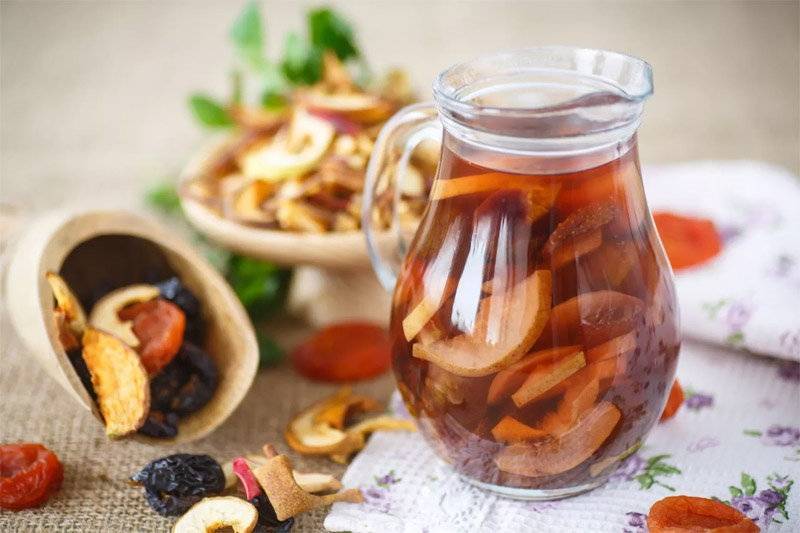
- Dried apples. Ideal for making compotes. Dried apples contain potassium, magnesium, calcium, iron, phosphorus, and vitamins. Apples rarely cause allergies, and therefore during lactation you can prepare compotes from them. After cooking, vitamins are not preserved, but microelements remain and retain their properties. B vitamins and ascorbic acid are partially retained in the drink. Fiber is contained in boiled fruits, but you should not eat them during the first three months of feeding - because. fiber causes increased gas formation.
- Dried pears. Compote made from dried pears, in addition to microelements, contains tannin, which has astringent properties. Pear compote will help cope with diarrhea. But it is not recommended to drink it if the mother or child is constipated. In addition, this drink has diuretic properties. What is useful for the prevention of urinary tract diseases.
- Dried apricots. Dried apricot compote contains a large amount of potassium, as well as magnesium, calcium and sodium. These microelements are beneficial for the functioning of the heart muscle. Compote of dried apricots has a diuretic and laxative effect. The iron contained in dried apricots is necessary to restore iron deficiency in the mother's body after pregnancy.
- Prunes. Contains large amounts of glucose. Potassium is involved in the regulation of water-salt metabolism and promotes the removal of fluid from the body.
- Dates. This product contains a large amount of carbohydrates, as well as microelements: copper, iron, zinc, fluorine, selenium, calcium, magnesium, phosphorus, etc. Thanks to the elements and glucose they contain, eating dates will help the female body recover after childbirth and strengthen the child’s bone and muscle tissue. Large amounts of iron help the production of hemoglobin in the blood. The vitamins contained in these dried fruits stimulate lactation. B vitamins have a beneficial effect on the nervous system of both mother and child.
- Rose hip. Rose hips contain a large amount of vitamins, especially vitamin C. This berry normalizes kidney function and restores immunity. Rosehip helps increase lactation. Half an hour before feeding, you need to drink a glass of decoction from this berry.
- Raisin. Raisins contain large amounts of iron, potassium, magnesium, phosphorus, and calcium. The berry contains B vitamins and nicotinic acid. Raisins, like other dried fruits, contain an increased amount of glucose, which is a source of energy. Also promotes lactation.
Prunes
Dried fruit compote based on prunes during breastfeeding is no less useful. This is another fruit that is also known to have laxative effects on the human body. With its regular use, the mother and her baby normalize their stool.
At the same time, many pediatricians share a common opinion regarding prunes - they should be included in the diet 3 months after the birth of the child, but not earlier. This will avoid intestinal upset in the newborn.
Dates
Dates contain a huge amount of different amino acids. The process of childbirth for each woman is different, which is due to the individual characteristics of the body. For some, they go easily and without complications, but in some cases, childbirth can be difficult. Sometimes a woman loses a lot of blood during this process. In this case, experts recommend consuming dates first.
What are the benefits of compote made from dried fruits, in particular from dates? This product also helps improve lactation and the flow of breast milk. It contains a lot of potassium and magnesium. But besides this, dates are simply rich in serotonin (the “happiness” hormone).
Precautionary measures
For your information! Raisin-based drinks are introduced into the diet no earlier than 2 weeks after the birth of the child. Compotes from dried apricots and figs can be drunk after a month, and for dates - no earlier than after 4 months.
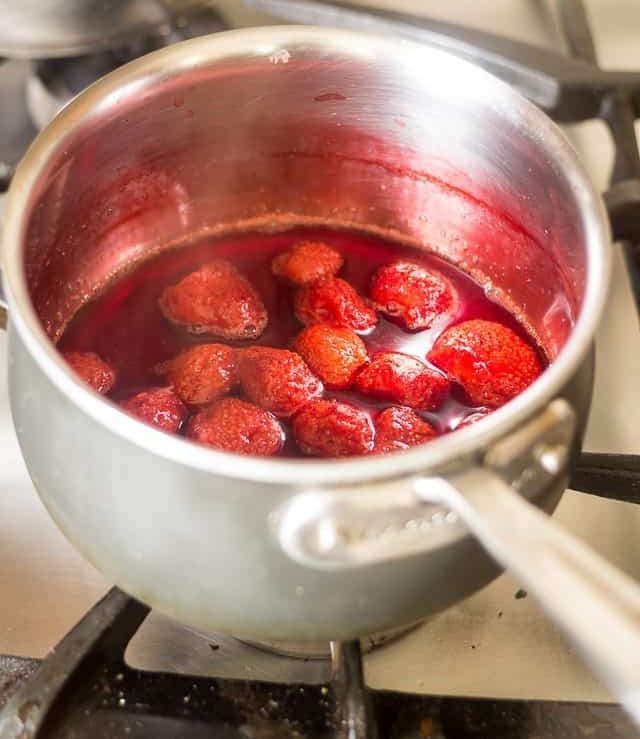
Dried fruits will not cause significant harm to the body of a nursing woman or child. Nevertheless, any mother needs to take note of a number of nuances when consuming dried fruits:
In addition, you must always remember that bright red fruits can provoke allergic reactions. In this connection, it is better not to chase beauty, but to visit the nearest village and buy some nondescript green fruits there (about the size of a small bucket).
Can a nursing mother eat apples?
Eating these fruits has been proven to have positive effects. Apples normalize metabolism; they can be eaten immediately after childbirth, but baked.
Is it possible to eat apples during breastfeeding? The answer is unequivocal - yes.
You need to eat 1-2 apples a day. In this case, it is better to peel the fruit. Baked apples in the oven are the most beneficial for a nursing mother.
Pediatricians' opinions on eating apples
Is it possible to eat apples while breastfeeding, according to pediatricians? Most pediatricians say they are worth adding to your menu. Pediatricians definitely answer the question whether nursing mothers can have green apples. During breastfeeding in the first month, you can eat not only fresh apples, but also prepare compote without sugar.
Is it possible to eat green apples during breastfeeding?
Green varieties can be eaten within 3 weeks after birth. They normalize digestion, improve the condition of teeth, lower cholesterol, help lose weight, etc.
Can a nursing mother eat green apples? Certainly. They have the least sugar and the most iron compared to other varieties. But green varieties can sometimes cause harm. If your baby has high stomach acidity, it is better not to include them in the menu at all or in moderation.
It is best to eat green baked apples in the oven while breastfeeding.
Red apples during breastfeeding
What apples can you eat while breastfeeding besides green ones?
Red apples are rich in nutrients. But they can cause colic
Is it ok to buy red apples while breastfeeding? You need to eat them with caution, they contain a lot of preservatives. Red apples contain a pigment that causes allergies.
Conclusion - you can eat red apples during lactation, but take precautions
- You should not eat store-bought fruits. It’s better if these are red varieties from your garden.
- You can buy red apples at the market. They are more harmless.
- You need to eat them without the peel.
- You shouldn't get too carried away with them. It is better to give preference to green varieties.
Yellow apples for a nursing mother
Yellow fruits are not as juicy as green ones and not as sweet as red ones.
First, you can try a puree made from yellow varieties. If the body’s reaction is normal, then yellow apples can be introduced into the diet.
Doctors advise women to eat yellow apples only six months after giving birth. Not earlier.
Apples during breastfeeding in the first month
You can eat apples during the first month while breastfeeding. First, try eating one piece in the morning. Observe the child's reaction. During the first month, a nursing mother should choose green apples.
Can I have fresh apples?
Fresh apples can be eaten in the first days after childbirth. But limit yourself to eating 1 fruit.
It is better to peel any fresh apple. It is not recommended to eat fruits that have begun to rot. It is better to make compote from them.
Baked apples for breastfeeding
Fruits are a real treat. This dessert is prepared in just a few minutes, and its benefits for the stomach are enormous.
Baked apples are extremely beneficial for a girl; they help her recover after childbirth.
An apple baked in the microwave is less healthy for a nursing mother than one cooked in the oven.
Is it possible to dry apples while breastfeeding?
Dried fruits can also be eaten by a young mother. It is better to choose dried apples when breastfeeding, prepared yourself. The best option for consuming dried fruit is compote.
Can a nursing mother have apple compote?
It is advisable not to add sugar at all to a drink made from dried fruits; it is better to add less apples and more water.
Start drinking 1 cup at a time and watch the baby. If there is no reaction, you can prepare a richer drink.
For compote, dried fruits are washed, filled with water and cooked for 10 minutes without sugar.
Soaked fruits should not be included in the menu right away in the first months. It is not store-bought fruits that should be soaked.
Can a nursing mother eat an apple with the peel on?
Is it possible to eat apples with the peel when breastfeeding a newborn?
It is not recommended to eat them with the peel and here's why. They can cause increased acidity and allergies. In addition, many apples are treated with chemicals to keep them beautiful longer. All harmful substances accumulate in the skin. Therefore, eating fresh, unpeeled fruit is not recommended.
It's easier with baked fruit. You can bake it and then simply remove the skin.
Rules for preparing recipes
Among many women, a logical question usually arises: “When preparing dried fruit compote, how much sugar should be added?” Too much of it leads to increased gas formation in the baby’s body. In this regard, it is better to cook compote without this ingredient. As a last resort, if you still need to add flavor to the drink, then you need to add very little of it so that it becomes a little sweet.
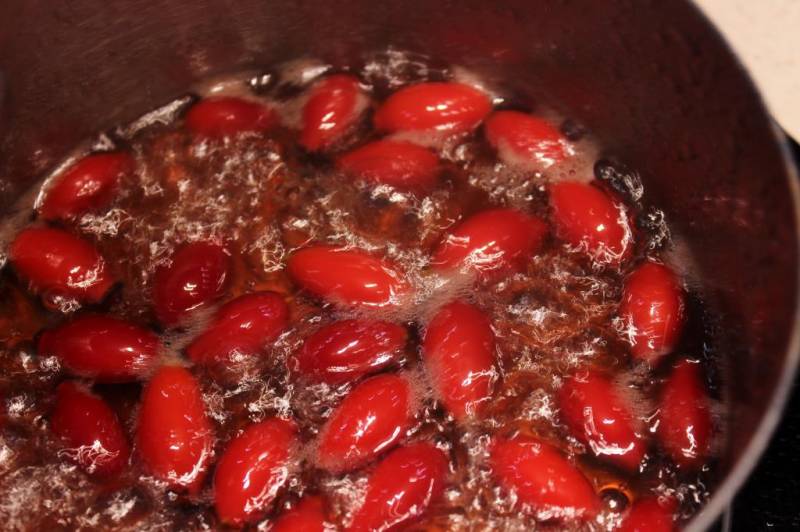
It is better not to buy dried berry compote in the store, but to make it at home, which will be much healthier. Any special mixtures should also not be used, with the exception of sugar and vanilla. All fruits must be thoroughly washed before cooking.
As for citrus fruits, it is not advisable to add them to compote, since they can cause allergies in many children.
What apples are best to eat?
Although the fruit is considered a hypoallergenic product, it should be eaten raw with caution. Apples can cause digestive upset in babies
There are many varieties and recipes for successfully introducing the fruit into the diet of a nursing woman.
Reds
You can eat red varieties if the mother does not have allergies. The point is the red skin; because of the pigment, the apple is considered allergenic, just like citrus fruits. Mommy should introduce them into the diet from the second month of feeding. If you want to eat the juicy fruit earlier, you need to peel it and bake it in the oven.
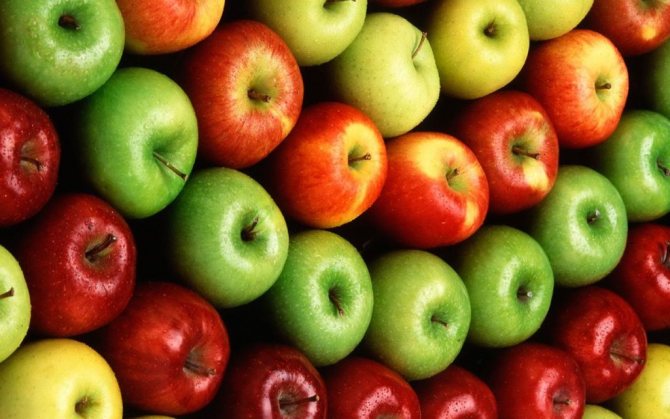
The pulp of red varieties is looser, which is good for the gastrointestinal tract, and at the same time very sweet. This contributes to excessive fermentation in the baby’s intestines.
Greens
The most hypoallergenic fruits are green. They are recommended to be eaten by the mother in the first days, and even hours, of the child’s life. They are saturated with vitamins B1, B2, E, C, P, which helps to quickly restore lost strength during childbirth. If the variety is too sour, you need to prepare freshly squeezed juice and dilute it with water.
Often mothers who have recently given birth and have microtraumas are afraid to go to the toilet “in a big way” for fear of pain. In such a situation, green apples will cope well with constipation and improve bowel movements.
Dried
Dried apples should be used with caution. You are allowed to consume 25 grams of the product per day
They prefer self-dried ones rather than store-bought ones. Store-bought dried apples are treated with a chemical composition, which can lead to food poisoning.
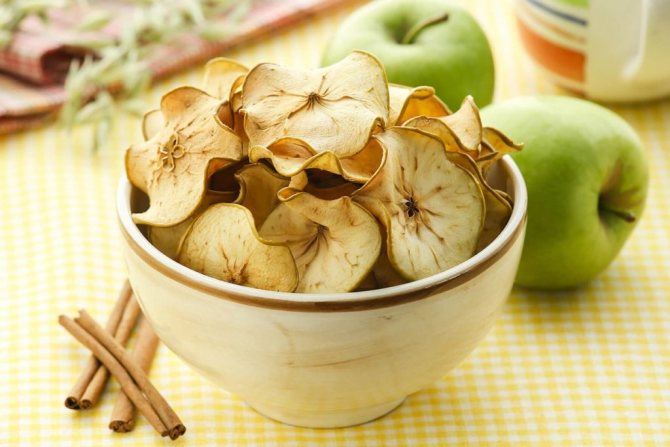
Before eating, dried fruits are thoroughly washed with chilled boiled water. But even such a measure will not protect a nursing mother from bacteria that may have accumulated on apple slices. The safest thing to do is make a slightly sweet compote from them. Warm drinks will help improve lactation.
Baked
The healthiest apples are baked. They are subjected to heat treatment, which means they do not contain dangerous microbes and retain their beneficial properties. You can eat baked apples in the first month after giving birth. Doctors recommend choosing green varieties for baking and not supplementing the dish with other ingredients. If the dish is to the liking of the mother and the newborn, you can add cottage cheese, raisins, nuts, honey or sugar one by one and in small quantities.
To prepare apple dessert, you will need to remove the core from a whole apple. Place the workpiece in a suitable oven-safe container. Bake in the microwave for 5 minutes, in the oven for 10.
In the form of compote
Pediatricians recommend drinking fresh apple compote from the 3rd week of feeding a newborn. The drink enhances the production of breast milk, removes toxins, stabilizes metabolic processes, fills cells with moisture and nutrients.
You can drink apple compote up to 1.5 liters per day. For the first time, do not make the drink rich and sweet
It is important to control the reaction of the baby’s body. If bloating, diarrhea or increased gas formation are observed, then stop taking it until all negative symptoms disappear.
If events develop favorably, more apples are crushed into the drink, sugar or honey is added.
It will take a little time to prepare the compote. Take 600 grams of juicy green apples, 1–1.5 liters of water, if desired – 5 dessiatines. spoons of sugar. Washed, seeded fruits are added to clean boiled water. Bring the mixture to a boil and cook for 3 minutes. Add sugar and remove container from heat. Let the drink brew for 30–40 minutes. If dried fruits are used instead of apples, the cooking principle is the same, only before cooking they are poured with boiling water for 10 minutes and rinsed thoroughly.
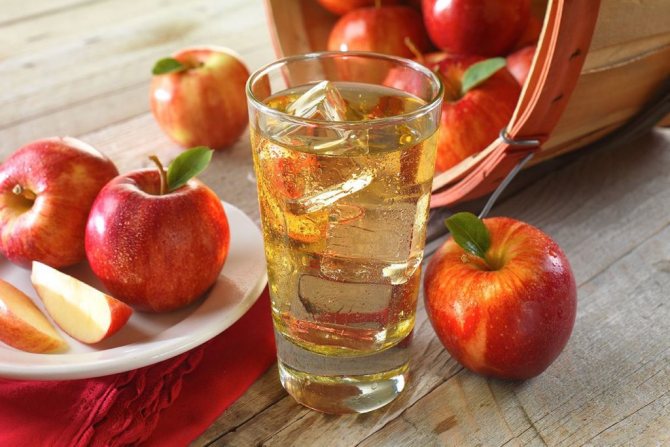
How to cook dried fruit compote: step-by-step recipe
To prepare this drink you need to prepare the following ingredients:
The listed components are taken at the rate of 500 grams of all dried fruits per 2 liters of water. First of all, pears and apples are placed in a container with water, which should be cooked until softened (you can test this by taste or with a knife or fork). After this, you can add the remaining ingredients and continue boiling. To improve the taste, you can add a teaspoon of lemon juice and a pinch of granulated sugar.
Important point! Processing dried fruits with boiling water is due to the fact that this procedure avoids the risk of developing intestinal diseases in infants.
After 30 minutes, the container is removed from the “fire” and cooled to a temperature of 40–50°C. If a nursing mother does not have allergies, then you can add a little cinnamon or vanilla (to taste) to the recipe for compote of dried apples and other fruits.
Dried apricot recipe
A similar drink is prepared as follows:
Dried apricot can be consumed by nursing women in its pure form. However, its amount should not exceed more than 100 grams per day, since this product is difficult for the infant’s digestive system.
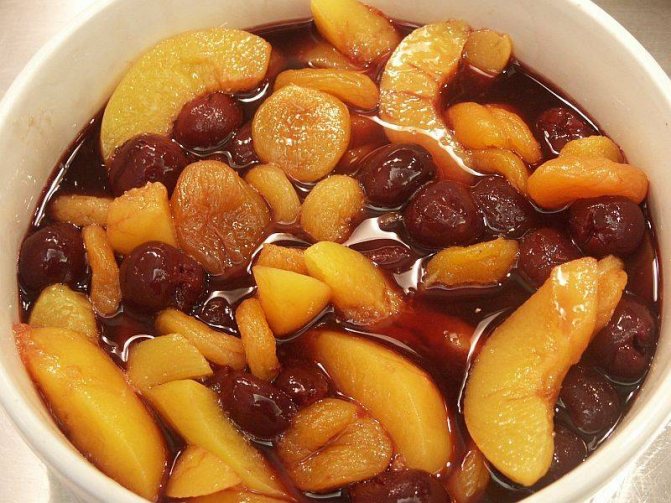
Compote of dried apricots is another matter, but you shouldn’t overuse it either.
The benefits of dried apples
Of all the drinks, the recipe for dried apple compote is relevant for nursing mothers already in the first month of a child’s life. Apples are known for their hypoallergenic qualities and in very rare cases can cause allergies in children, who are most prone to food allergies.
And since, as previously noted, red fruits cause similar reactions, green varieties should be used. There are only three ingredients here:
The dried fruit compote ingredients are washed well and placed in a container with hot water for half an hour. Then they are transferred to boiling water and cooked for 30 minutes over moderate heat. Then you can add sugar and cook for another 5 minutes.
